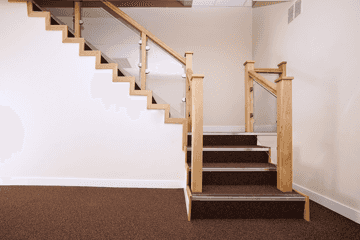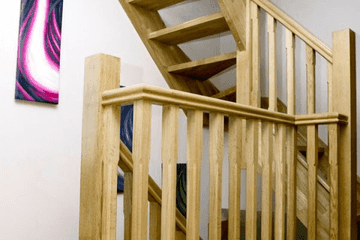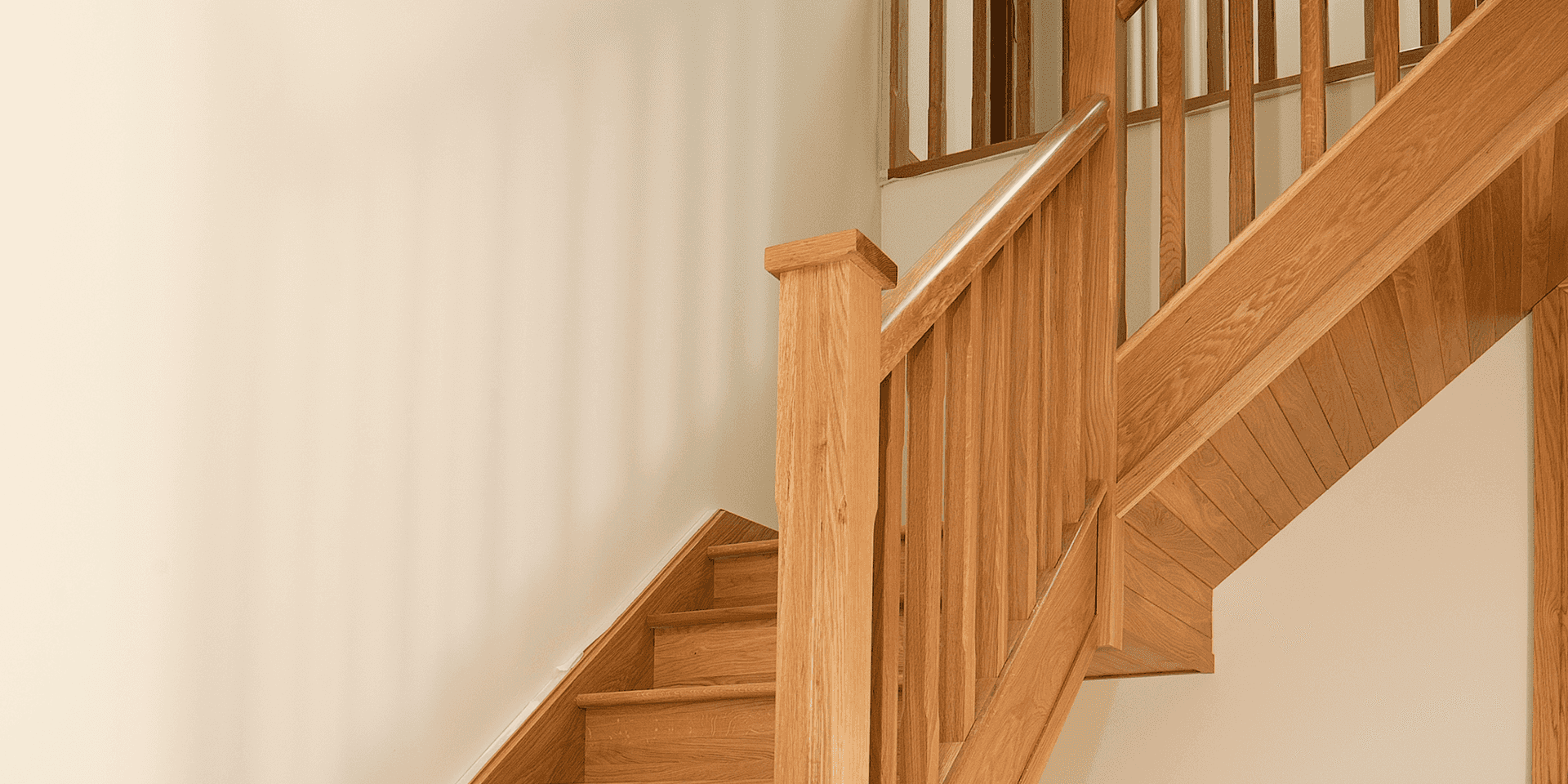
Oak Staircases
The enduring beauty and timeless appeal of Oak adds warmth and elegance to any space, with its rich grain patterns and inviting hues. It is an exceptional choice for staircases, renowned for its distinctive character, robust durability, and timeless appeal.
Oak's inherent strength ensures that your staircase withstands the test of time and the rigors of daily use, making it a practical investment for both traditional and contemporary homes.
Examples of Oak Staircases
Filter by:
String Detail
Show:
Cut string stairs (also known as open-string stairs) are a type of staircase where the stringers - the inclined boards that support the treads and risers - are 'cut' or shaped to follow the profile of the individual steps.
This design feature allows the profile of each step to be visible from the side of the staircase, giving the stairs a more elegant and detailed appearance compared to closed string stairs, where the stringers run straight and the treads and risers are enclosed within them.
The open design of cut string stairs not only contributes to the aesthetic appeal but also allows more light to pass through the staircase, which can make the stair area feel more spacious.
Closed-string stairs are a type of staircase design where the side profile of the steps (known as the 'string' or 'stringer') is enclosed or solid. This means that the sides of each step are covered by the stringer, and the edges of the treads and risers are not visible when viewed from the side. In this design, the stringers hold the treads (the part of the stair that you step on) and risers (the vertical part between each tread) in place from the sides.
This contrasts with cut-string stairs, where the stringers are cut out to follow the profile of the treads and risers, leaving the edge of each step visible from the side. Closed string stairs provide a more finished look and can be safer by preventing objects or feet from slipping between the treads.
Take a look at some of our designs.
An open riser staircase is a type of staircase where the risers - the vertical components between each tread - are missing, leaving a space between each step.
This architectural feature creates a visual effect of lightness and openness, allowing light to pass through and making the environment feel more spacious. Open riser staircases are popular in modern and contemporary design for their sleek, minimalist appearance.
A closed riser staircase is a type of staircase where each step has a vertical piece between treads, known as the riser, which is closed off. This means that there is no open space between the treads as you move up the stairs. This design can provide a safer walking surface because it prevents objects, feet, or heels from slipping through the gap that would exist in an open riser staircase.
Closed riser staircases are common in residential and commercial buildings due to their safety and traditional aesthetic.
By choosing a straight single flight wooden staircase you are selecting a durable, stylish, and space-efficient addition to your home. Their linear design, in contrast to spiral or curved alternatives, is particularly well-suited to smaller spaces, maximizing area without compromising functionality.
Customization options abound, from the material types such as wood, glass or steel, to custom finishes, handrails, and bannisters, allowing you to craft a staircase that perfectly matches your vision.
L-Shaped Staircases have an angular layout, connecting them efficiently to the different levels of a home without the need for excessive space, making them particularly useful in smaller or uniquely shaped areas. They offer a compact and efficient layout ideal for homes with space constraints or unconventional floor plans.
They often include a landing partway up, which acts as a comfortable pause point, and newel posts at transitions for structural integrity and visual appeal.
U-Shaped staircases are particularly suitable for multi-level homes or areas where a traditional straight staircase wouldn't be practical. U-shaped staircases usually include landings, which offer a pause between flights of stairs, and newel posts, which provide structural support for the handrail at critical transition points.
The hallmark of a curved staircase is its seamless, sweeping curve which adds a sophisticated visual element to any space. This curve makes the staircase not just a functional feature but also a piece of art, often serving as the focal point in a room.
Available in a selection of premium woods these staircases can be left in their natural beauty or finished with stains or paints to complement your home's decor. All of our curved staircases are tailored to meet your specific specifications, ensuring a perfect fit and adding a touch of luxury to your home.
View Other Stairs
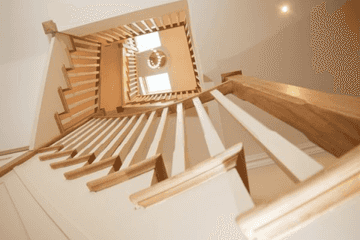
Primed Staircases
Primed staircases are a unique and innovative solution for constructing stairs, particularly in modern residential and commercial buildings.
View More
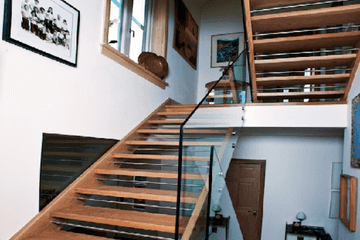
Walnut Staircases
Walnut is highly valued for staircase construction due to its rich, elegant colour and distinctive grain, which lend a luxurious appearance to interiors.
View More
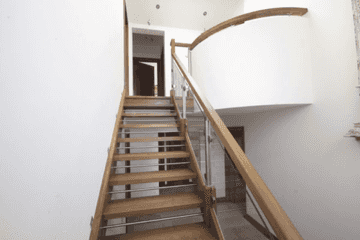
Metal Staircases
Metal is a popular choice for staircases due to its robustness and striking visual appeal. It offers excellent durability and strength, making it suitable for high-traffic areas.
View More
Testimonials
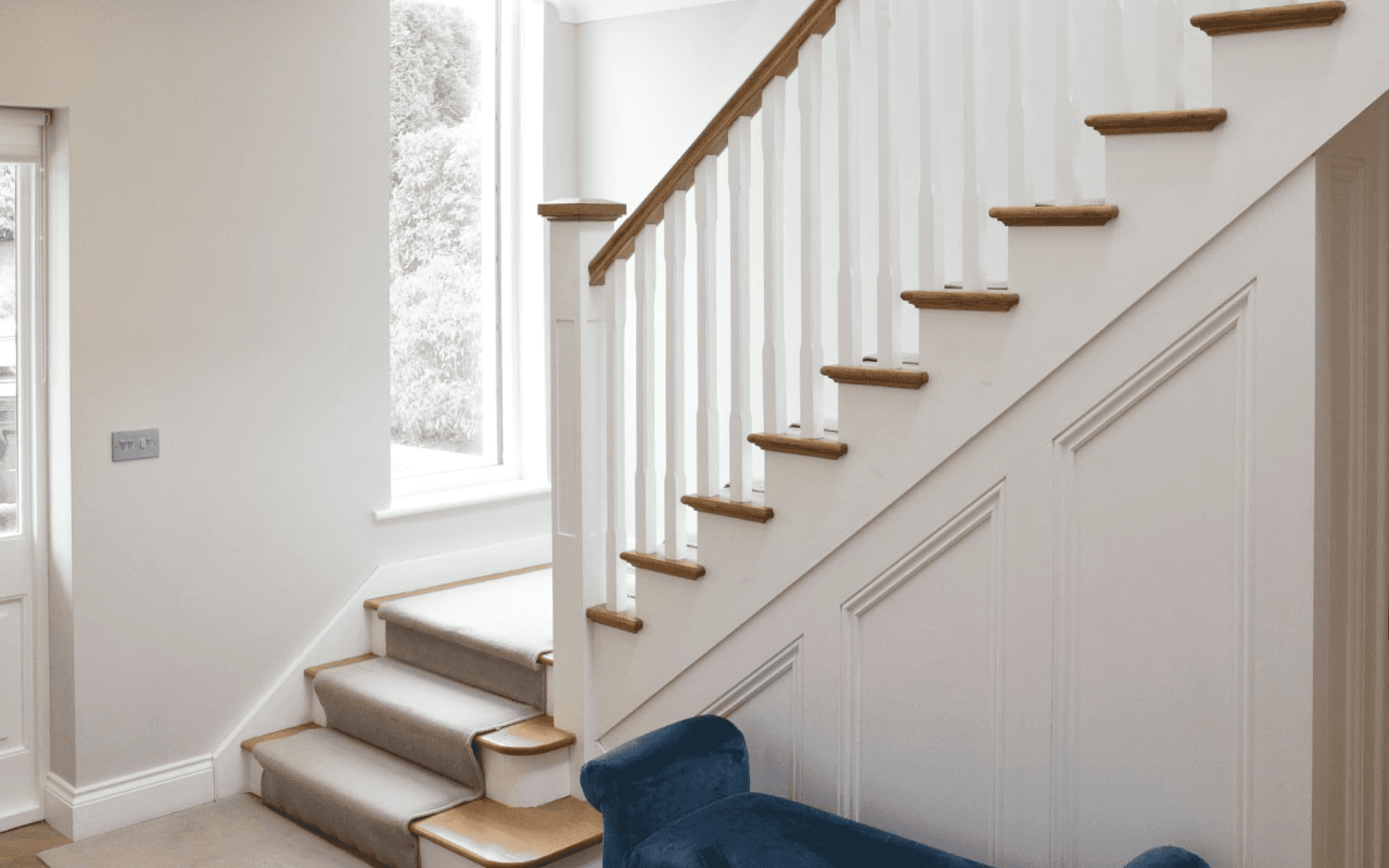
Such lovely and professional group of people and fast. I explained what I needed, they measured up, and when they were ready, it took less than a day to install.
Carolann Brady
Excellent craftmanship. The retrofit of our stairs has exceeded our expectations and is a feature in our home now. The lads were great!
Phillip Coey
I'm delighted with my new stair rail and bannister. It has transformed the hall, which had an ugly 1960s solid wall going up the stairs. I highly recommend Connolly Stairs. The fitters Gavin, James, Adrian and plasterer Olegas are superb craftsmen, they arrived on time and cleaned up as they went along. Really excellent workmanship. We plan to get new doors at some stage and will definitely go back to Connolly.
Lisa McGuirk








